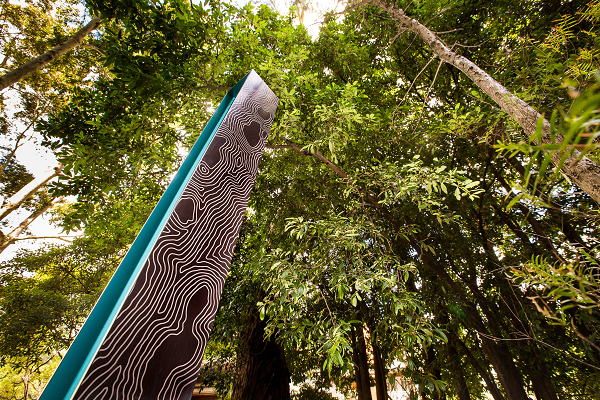We recognise that reconciliation is central to our purpose.
We're committed to fostering an environment where the relationship between Aboriginal and Torres Strait Islander peoples and their fellow Australians is characterised by deep mutual respect, building positive change throughout our nation.
CONTENT WARNING: Aboriginal and Torres Strait Islander readers are advised that the following content may contain images and names of people who have died.
Acknowledgement of Country
The University of Melbourne acknowledges the Traditional Owners of the unceded land on which we work, learn and live: the Wurundjeri Woi-wurrung and Bunurong peoples (Burnley, Fishermans Bend, Parkville, Southbank and Werribee campuses), the Yorta Yorta Nation (Dookie and Shepparton campuses), and the Dja Dja Wurrung people (Creswick campus).
The University also acknowledges and is grateful to the Traditional Owners, Elders and Knowledge Holders of all Indigenous nations and clans who have been instrumental in our reconciliation journey.
We recognise the unique place held by Aboriginal and Torres Strait Islander peoples as the original owners and custodians of the lands and waterways across the Australian continent, with histories of continuous connection dating back more than 60,000 years. We also acknowledge their enduring cultural practices of caring for Country.
We pay respect to Elders past, present and future, and acknowledge the importance of Indigenous knowledge in the Academy. As a community of researchers, teachers, professional staff and students we are privileged to work and learn every day with Indigenous colleagues and partners.
-
Students
Our Aboriginal and Torres Strait Islander students come from all over Australia. Learn more about how we support each student’s academic, global, social and cultural experience at the University.
-
Staff
As one of the leading research and teaching universities, the University of Melbourne is an ideal platform to build an academic or professional career.
-
Research
See how we have built a strong Indigenous research community both within and beyond the University.
-
Engagement
Read about our commitment to supporting social, economic and cultural advancement with and for the Indigenous communities we serve.
-
Governance
Learn more about our senior Indigenous leadership and consultative bodies, our cultural protocols, and our reconciliation journey.
-
Stories
Discover our stories celebrating our engagement with Aboriginal and Torres Strait Islander people as we navigate our path towards reconciliation.
Upcoming events
Significant Dates
4 February | Anniversary of the Cummeragunja Walk-Off
12 February | Anniversary of the Freedom Ride
13 February | Anniversary of the National Apology
21 March | National Close the Gap Day (2024 date)
21 March | International Day for the Elimination of Racial Discrimination
26 May | National Day of Healing
27 May | Anniversary of the 1967 Referendum
27 May – 3 June | National Reconciliation Week
3 June | Mabo Day
1 July | Coming of the Light
7 – 14 July | National NAIDOC Week (2024 dates)
4 August | National Aboriginal and Islander Children’s Day
2 - 5 August | Garma Festival (2024 dates)
9 August | International Day of the World’s Indigenous People
23 August | Anniversary of the Wave Hill Walk-Off
1 September | Indigenous Literacy Day
13 September | Anniversary of the UN Declaration on the Rights of Indigenous People
10 December | Human Rights Day

Further Reading
Find online resources about Australian Indigenous culture, history, knowledge and wellbeing.
